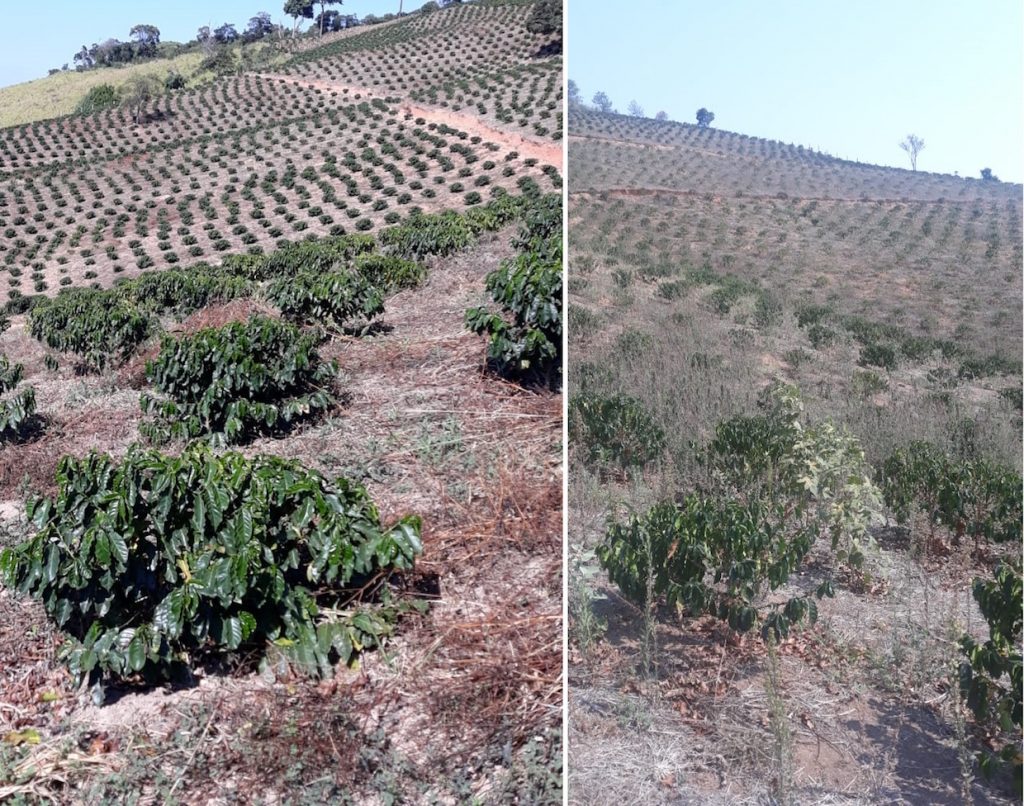
A Bloomberg report stated that the severe drought condition in Brazil’s Center-South region, a powerhouse of agricultural output, has left farmers worried about running out of the water reserves that help keep crops alive over several months of the dry season. Further, it stated that as these areas cannot get enough water, Brazil’s coffee and orange output may decline for the second year in a row.
Parched lands and low river levels in the nation’s Center-South region, a powerhouse of agricultural output, has the country and the world concerned. Brazil’s current orange crop shrunk 31% from the previous season, the most in 33 years, and production of arabica coffee, the high-end kind used by chains like Starbucks Corp., is also dropping sharply.
The prolonged dry weather spell has led more than 100 cities in Brazil to ration water. Along with the coffee producers, those involved in the sugarcane plantation have also been hit hard. Local news reports say that only about 30% of Brazil’s orange crop and 15% of arabica coffee fields are irrigated.
The prospect of withering orange trees and coffee plants comes at a time when agricultural crops are rallying to multiyear highs, which has fanned fears of food inflation. Brazil’s economy ministry raised its inflation outlook for this year to 5.05% from 4.42% previously, amid mounting risks on the horizon. Higher food costs may exacerbate hunger, a problem around the globe that the Covid-19 pandemic has made more acute. Coffee and raw-sugar contracts on the ICE Futures exchange in New York have already touched four-year highs.
Rainfall was disastrously low for many areas in Sao Paulo and Minas Gerais from January to April. The worst hit areas received less than half of normal precipitation, at a critical time when coffee plants need moisture for the beans to grow. It is also a period when the soil stores water to cope with the dry season.
Scientists and activists blame deforestation for the present drought condition. Last year, Amazon deforestation surged to a 12-year high. Last month, President Jair Bolsonaro’s government drew criticism for approving a 24 percent cut to the environment budget for 2021 compared to the previous year’s level.
